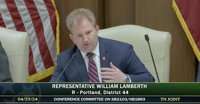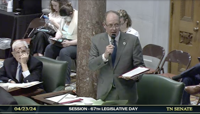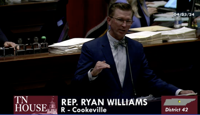(The Center Square) – Tennessee saw $495 million worth of gross sports wagers in December while collecting $9.1 million in privilege tax.
The total gambled was up from $440.4 million of gross wagers in December 2022 while the tax collections were down from $9.4 million.
The totals come a month after the state topped $500 million in monthly gross wagers for the first time while collecting $9.5 million from the sportsbooks in taxes in November.
Tennessee levies a 1.85% tax on gross handle, which replaced a 20% tax on adjusted gross income that was in place until July.
Tennessee sends 80% of its sports wagering taxes to the Lottery for Education Fund to pay for things such as the Hope Scholarship while 15% goes to the general fund of local governments and 5% goes to the state's Department of Mental Health.
Tennessee’s Sports Wagering Council presented its budget to the House Finance, Ways and Means Committee on Wednesday.
It projects a dip in this fiscal year’s tax collections. Tennessee collected $82.1 million in privilege tax on mobile sports wagers last fiscal year with $78.8 million projected this fiscal year and projections of $82.7 million next fiscal year before reaching a projected $86.9 million in taxes next year.
After the tax change, the SWC stopped reporting how much Tennessee sportsbooks were making off the gross wagers and how much was being paid out as winnings, something that made Tennessee unique in its lack of public reporting compared with other states that have online sports wagering.
During Wednesday's hearing, Rep. David B. Hawk asked if the sportsbooks are required to give that information to taxpayers.
SWC Executive Director Mary Beth Thomas told Hawk her department has access to those numbers but it used to be required to audit the payouts and now it does not have that responsibility.
"When the tax structure changed to be a tax on the total amount of wagers that come in, not considering payouts, we - in order to not use our staff time on something that wasn't required under the statute - we did not do a monthly reconciliation of wagers and payouts," Thomas said.
Hawk then noted that he wonders if it would be informative to the Legislature and citizens to know how much is being won and lost overall in sports wagering in the state while thinking about "full disclosure," saying he would like a follow-up conversation with Thomas on the request.
"In the days/years to come, I think that might be some information that would be valuable to us as we look at setting these potential fees in the future," Hawk said.









